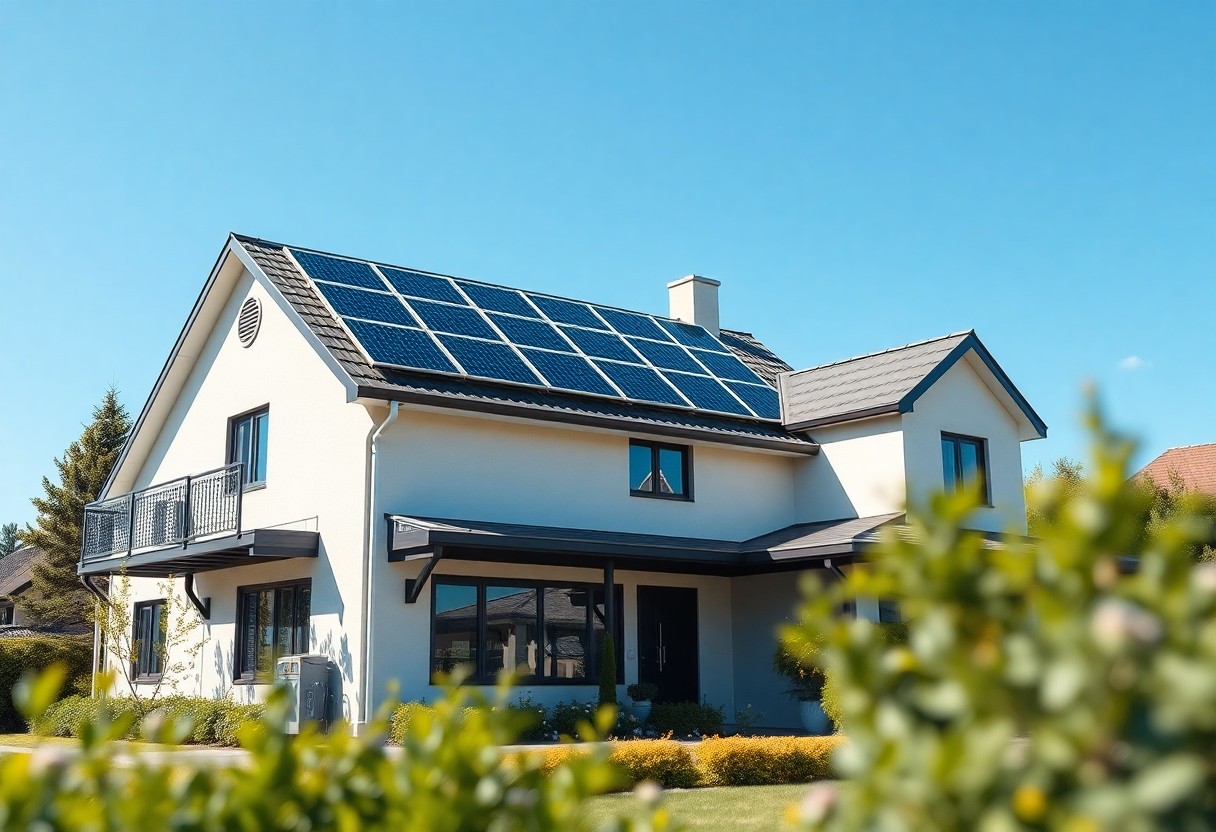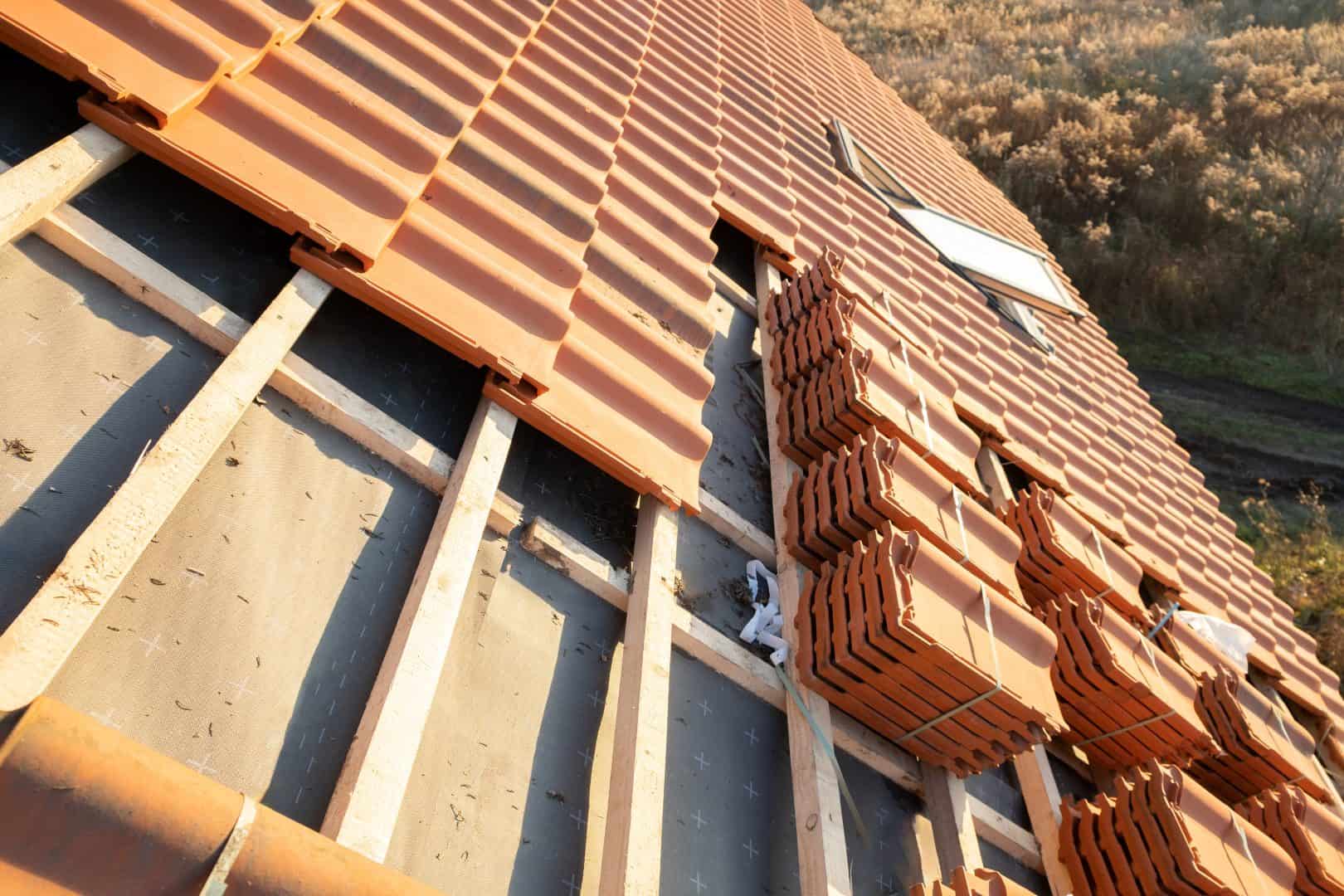Can I install solar panels on my new roof?
Fill Out The Form And We'll Get Back To You

Most homeowners considering solar energy often wonder if installing solar panels on a newly built roof is feasible. This guide will help you understand the factors that influence the installation process, including your roof’s orientation, structure, and any local regulations. By the end, you’ll be equipped with the knowledge needed to make an informed decision about harnessing solar energy for your home.
Key Takeaways:
- Roof Condition: Ensure your new roof is structurally sound and suitable for solar panel installation.
- Local Regulations: Check local building codes and permits required for solar panel installation.
- System Orientation: Consider the orientation and angle of your roof for optimal solar energy capture.
Understanding Roof Compatibility
For a successful solar panel installation, it is vital to assess your roof’s compatibility with solar systems. Factors such as orientation, pitch, and the presence of shading can significantly impact efficiency and energy generation. A suitable roof ensures that your investment in solar energy yields maximum returns.
Roof Types and Materials
For effective solar panel installation, knowing the type and material of your roof is crucial. Here are some common roof types and their compatibility:
- Asphalt Shingle
- Metal
- Tiles (Clay or Concrete)
- Flat Roof
- Wood Shake
Any roof type can potentially accommodate solar panels, but specific requirements may vary.
| Roof Type | Compatibility |
| Asphalt Shingle | Highly compatible with solar panels. |
| Metal | Excellent for solar, often pre-designed for installations. |
| Tiles (Clay or Concrete) | Compatible, but may require extra support. |
| Flat Roof | Good option with the right mounting systems. |
| Wood Shake | Less common; may need structural reinforcement. |
Structural Integrity Considerations
Above all, ensuring your roof’s structural integrity is necessary before installing solar panels. This involves assessing the load-bearing capacity of your roof to support additional weight from solar installations. Factors like the age of your roof and previous damage should also be taken into account.
Another key aspect involves engaging a qualified professional to evaluate your roof’s structure. They can identify any necessary reinforcements or repairs to ensure that your solar panels are securely mounted and that your roof can withstand environmental stressors, such as wind and snow loads. This step safeguards your investment and prolongs the lifespan of both your roof and solar system.
Local Regulations and Permits
The installation of solar panels on your new roof requires adherence to local regulations and permits, which can vary significantly depending on your area. You should consult your local council to understand specific requirements and ensure compliance with all necessary guidelines before proceeding with your solar panel installation.
Zoning Laws
For solar panel installations, zoning laws can impact the types and sizes of systems allowed in your area. Before you begin, check local regulations regarding zoning, as they can dictate where solar panels can be placed on your property.
Building Codes and Permits
Codes governing building safety and environmental standards often dictate the requirements for solar panel installations. You will typically need to obtain a permit that proves your project adheres to these codes.
Another aspect of building codes and permits relates to structural integrity; your roof must support the weight of the solar panels, and alterations may require additional inspections. Engaging with a qualified installer can help ensure that your solar panel system meets all necessary codes while also streamlining the permitting process, allowing you to focus on the benefits of renewable energy for your home.
Benefits of Installing Solar Panels
Your journey towards renewable energy can bring numerous advantages. By harnessing solar energy, you can significantly reduce your electricity bills while increasing the value of your property. Additionally, solar panels require minimal maintenance and offer long-term savings through energy independence. Furthermore, you’ll contribute to a sustainable future and reduce your carbon footprint, making a positive impact on the environment.
Financial Incentives
Benefits of installing solar panels include various financial incentives available to homeowners. These may encompass government grants, tax rebates, and feed-in tariffs that allow you to earn money for the energy your panels generate. These savings and incentives can substantially offset your initial investment, making solar energy more affordable.
Environmental Impact
Financial benefits of solar panels extend beyond your bills, as they contribute to a greener planet. By utilising solar energy, you significantly reduce greenhouse gas emissions, combat climate change, and decrease reliance on fossil fuels.
It is vital to understand the profound positive impact solar panels can have on the environment. By transitioning to solar energy, you are not only supporting sustainable practices but also encouraging a broader move towards renewable sources. This shift helps preserve natural resources, protects biodiversity, and contributes to cleaner air and water, promoting a healthier planet for future generations.
Choosing the Right Solar System
Now that you have a new roof, it’s the perfect time to consider the ideal solar system for your home. Replacing Your Roof? Solar Panels Should Be Included in your planning, ensuring you maximise energy efficiency and savings.
Types of Solar Panels
The various types of solar panels available can impact your energy production and costs. Here’s a quick overview:
| Monocrystalline | High efficiency, long lifespan. |
| Polycrystalline | Cost-effective but slightly less efficient. |
| Thin-Film | Flexible design, lower efficiency. |
| Bifacial | Collects sunlight from both sides. |
| Building-Integrated Photovoltaics (BIPV) | Integrated into building materials. |
This variety allows you to tailor your system to best fit your needs and budget.
Installation Options
On your journey to harness solar energy, consider the various installation options available to you. These can determine the efficiency and aesthetics of your solar setup.
With a range of installation methods, such as roof-mounted, ground-mounted, and even integrated systems, you have flexibility in how you can best utilise your space and orientation. This decision can impact not only the performance of your solar panels, but also your overall energy strategy.
Professional Installation vs. DIY
Keep in mind that the choice between professional installation and a DIY approach could significantly affect the overall success of your solar panel system. While DIY may seem appealing due to cost savings, professional installation offers expertise, safety, and assurance that your system will operate efficiently and in compliance with local regulations.
Advantages of Professional Installation
At the heart of professional installation is the wealth of knowledge that trained experts bring. They possess the necessary skills to select the right equipment, handle complex installations, and ensure everything meets local compliance standards. Additionally, professional services often offer warranties, giving you peace of mind about your investment.
Challenges of DIY Solar Installation
Installation of solar panels on your own can seem straightforward, yet it comes with its own set of challenges. You may encounter technical difficulties, a lack of proper tools, or insufficient knowledge about safety protocols, all of which can lead to costly errors.
For instance, you might underestimate the complexity of electrical work or the structural requirements of your roof. Without proper training, you could risk damaging your roof or harming yourself during the installation process. Moreover, ensuring your system meets local regulations may be more daunting than anticipated, potentially leading to fines or the need for costly rectifications.
Maintenance and Longevity
After installing solar panels on your new roof, you can expect them to require minimal maintenance, ensuring both your system’s efficiency and your investment’s longevity. It’s advisable to assess your roof’s condition and consider if any repairs are necessary before installation by reading more about Do I Need to Replace My Roof Before Going Solar?.
Ongoing Maintenance Requirements
At a basic level, your solar panels will need to be kept clean and free from debris to operate effectively. Regular inspections can help identify any potential issues or damage that may arise over time.
Expected Lifespan of Solar Panels
Around 25 to 30 years is the typical lifespan you can expect from solar panels, with many panels continuing to produce electricity beyond this time frame, albeit at a reduced efficiency.
Indeed, the longevity of solar panels means that they often represent a solid long-term investment in renewable energy. Most manufacturers offer warranties ranging between 20 to 25 years, ensuring your panels maintain optimal performance, while regular maintenance can help maximise their lifespan and efficiency. By choosing high-quality equipment and investing time in care, you can enjoy sustainable energy for decades to come.
Conclusion
Conclusively, you can install solar panels on your new roof, provided it meets the necessary criteria such as structural integrity and orientation for optimal sunlight exposure. Before proceeding, consider consulting with a qualified solar installer to assess your specific circumstances and ensure compliance with local regulations. By making this investment in renewable energy, you not only enhance your property’s value but also contribute to a more sustainable future.
FAQ
Q: Can I install solar panels on my new roof?
A: Yes, you can install solar panels on your new roof provided that the roof is structurally sound and suitable for the installation. New roofs are typically a good choice because they are less likely to require significant repairs in the near term. However, it is advisable to consult with a solar energy professional to assess the roof’s orientation, pitch, and materials to determine the best solar panel system for your needs.
Q: Will installing solar panels void my roof warranty?
A: It depends on the terms of your roof warranty. Many roof warranties remain intact if the installation is carried out correctly, and if the installers follow the roofing manufacturer’s guidelines. It is necessary to choose an experienced installer who is knowledgeable about roof specifications and to ensure that all work complies with warranty requirements. Always review the warranty documents or consult with your roofing contractor to clarify any concerns prior to installation.
Q: Do I need planning permission to install solar panels on my new roof?
A: In most cases, you do not need planning permission to install solar panels on your new roof, particularly if they do not protrude significantly above the ridge line and are placed on the main roof of a house. However, there are exceptions, especially for listed buildings or properties in conservation areas. It is recommended to check with your local planning authority to confirm any requirements or restrictions before proceeding with the installation.
Re-Roofing of House
The guys made a fantastic job of replacing the roof recently. They were fast, relaible and efficient. The work was carried out in a double-quick time.
Fascias and Soffits
We employed Wrights Roofs to replace the fascias, soffits and gutters that had been on the house since it was new. They carefully removed and replaced it all. Really impressed.
New Roof
We had an extension built and Wrights came and put a new roof on. They were excellent, no fuss, great value for money. Thank you.
Roofs, Flat Roofs Chimneys and Solar Panels
If you need roof work on your home, please complete the form or call us today.

